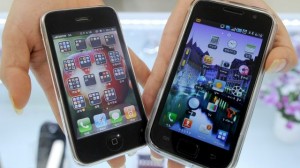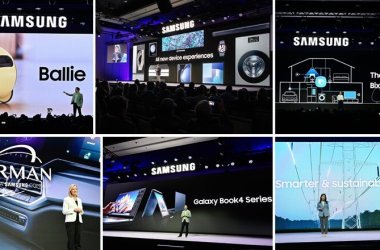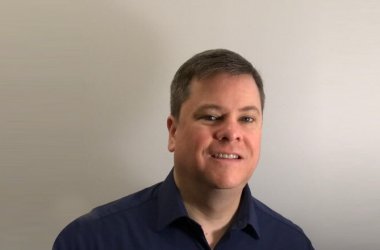A judge has ordered a partial retrial in Apple’s patent lawsuit against Samsung in California, and has cut hundreds of millions of dollars from the US$1 billion in damages Apple was awarded last summer.
Judge Lucy Koh, in an order published Friday, said the jury had applied an “impermissible legal theory” when calculating the damages Apple should receive for Samsung’s infringement of its patents.
Koh struck about $450 million off of Apple’s award and ordered a retrial to determine the correct damages related to about a dozen of the Samsung smartphones and tablets at issue in the trial.
She let stand Apple’s damages of $598.9 million for another 14 of the products.
The order doesn’t mean Apple won’t receive more than the $598 million, but it will have to go back to court to see how much money it can get.
The jury originally awarded Apple $1.05 billion, but Samsung asked for a retrial, arguing that the award was improperly calculated.
One of the issues concerns the date on which Apple notified Samsung that it was infringing some of its patents. Apple set that date too early in some cases, Koh said, which means the resulting damage calculations were too high.
Apple could have avoided the problems, Koh suggested.
“[I]t was Apple’s strategic decision to submit an expert report using an aggressive notice date for all of the patents. The need for a new trial could have been avoided had Apple chosen a more circumspect strategy or provided more evidence to allow the jury or the Court to determine the appropriate award for a shorter notice period,” she wrote.
Still, it was a complex case involving multiple patents and more than two dozen Samsung products, and many observers suspected at the time that the jury had miscalculated the damages.
Different types of patents call for different methods of calculating damages, and not all the products at trial were accused of infringing the same patents. For example, calculations for “design” patents can take into account how much profit Samsung made from selling the infringing devices, but “utility” patents can only take into account Apple’s lost profits and the royalty payments it would have received.
In some cases, Koh said, the jurors included lost profits in their calculations when they should not have.
The jury also had to consider the date on which Apple notified Samsung of the infringement. Apple told Samsung about one of the patents on Aug. 4, 2010, but Koh said it gave no evidence at trial that Samsung knew about other patents until Apple filed its lawsuit eight months later, and for still other patents until two months after that.
Koh said she didn’t have enough information to recalculate the damages herself, so she ordered the retrial for the products where errors were made. They include the Galaxy Tab, Prevail, Nexus S 4G, Galaxy II AT&T, Droid Charge and Epic 4G, among others.
Apple had also asked the court to award it additional damages for sales that took place since the trial ended. Koh said Apple was entitled to more money but that she wouldn’t make the calculation until appeals in the case have played out.
The case was heard in the U.S. District Court for the Northern District of California in San Jose. Early last year, Apple filed a second lawsuit in the same court that involves some newer Samsung products. Koh has said she’d prefer that case be put on hold until the first one gets resolved.






